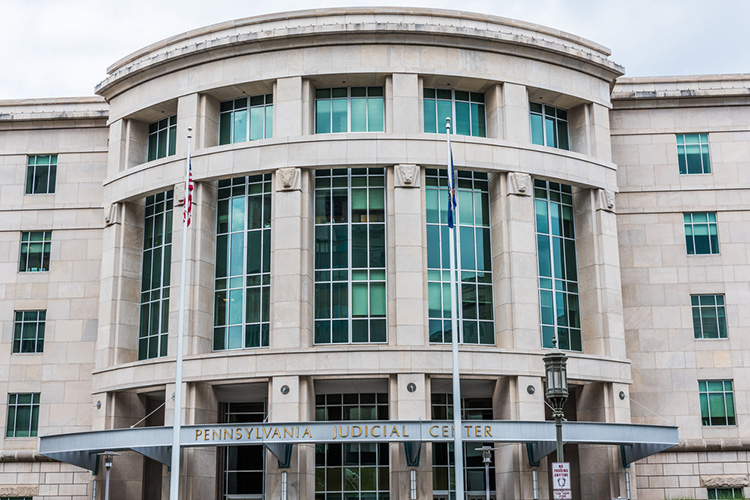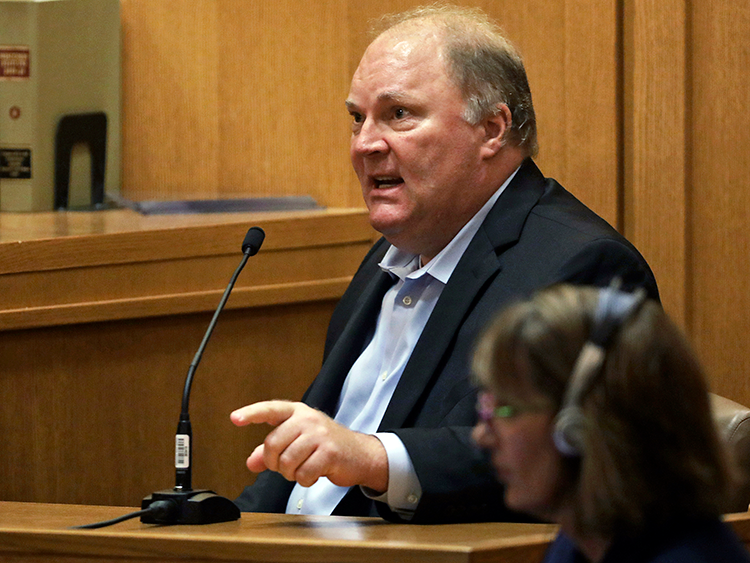Top state court deadlocks on fiduciary exception to attorney-client privilege in K&L Gates case

The Pennsylvania Judicial Center, home of the Pennsylvania Supreme Court. Photo from Shutterstock.com.
A deadlocked Pennsylvania Supreme Court was unable to decide last week whether trust beneficiaries are entitled to legal billing statements and other lawyer communications with the trustee under a fiduciary exemption to attorney-client privilege.
The split left intact a superior court ruling that a trustee had to turn over unredacted legal bills because of a lack of evidence supporting a privilege claim, wrote Justice David Wecht in his April 7 opinion for the court.
Law360 has coverage.
The court split 3-3 on the fiduciary exemption question after one judge did not participate in the case. Wecht and two other justices said they would support a fiduciary exception to attorney-client privilege when attorneys have a fiduciary duty to trust beneficiaries.
“We would hold that, where legal counsel is procured by a trustee utilizing funds originating from a trust corpus, the beneficiaries of that trust are entitled to examine the contents of communications between the trustee and counsel, including billing statements and the like,” Wecht wrote.
The beneficiaries in the case before the Pennsylvania Supreme Court had claimed that the trustee, who was their stepbrother, had spent too much money on legal bills after retaining two law firms, Julian Gray Associates and K&L Gates. The trustee hired the firms after the stepbrothers filed 21 objections to a partial accounting of the trust fund. Legal fees amounted to about $123,000 and were paid by the trust.
Justice Christine Donohue, joined by one other justice, argued against a fiduciary exemption. Trust administration may require the advice of counsel when the interests of multiple beneficiaries diverge, she said. The fiduciary exemption could discourage trustees from seeking legal advice and discourage service as a trustee altogether, she said.
She also noted that a fiduciary exemption “has been rejected by the vast majority of our sister states.”
A sixth justice said the issue is best left to the legislature.
The case is In Re: The Estate of William K. McAlee.



